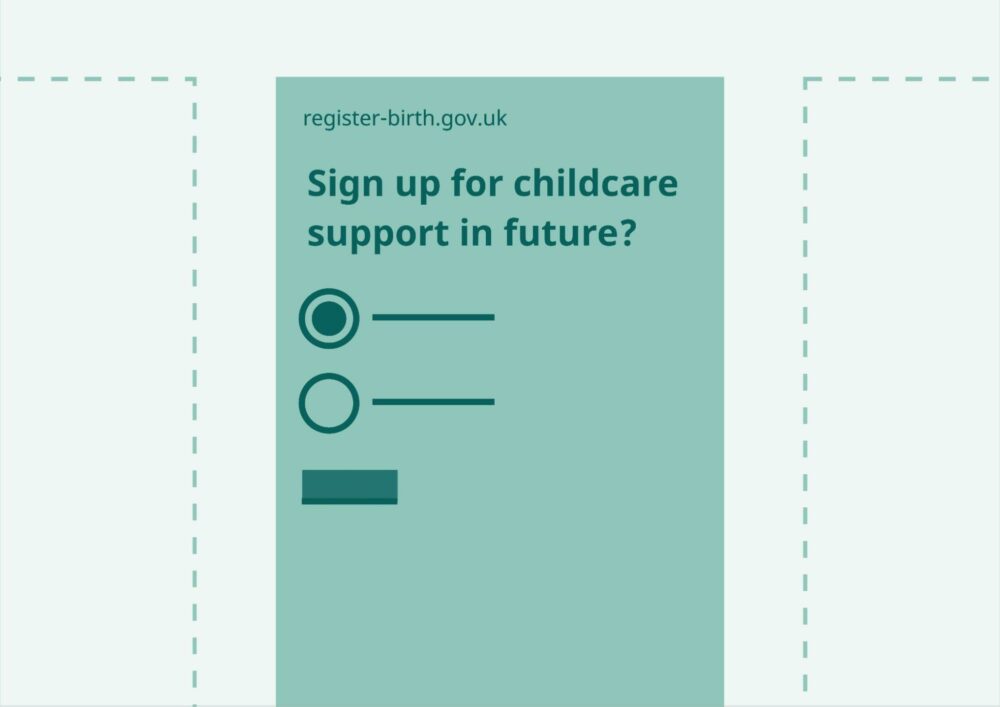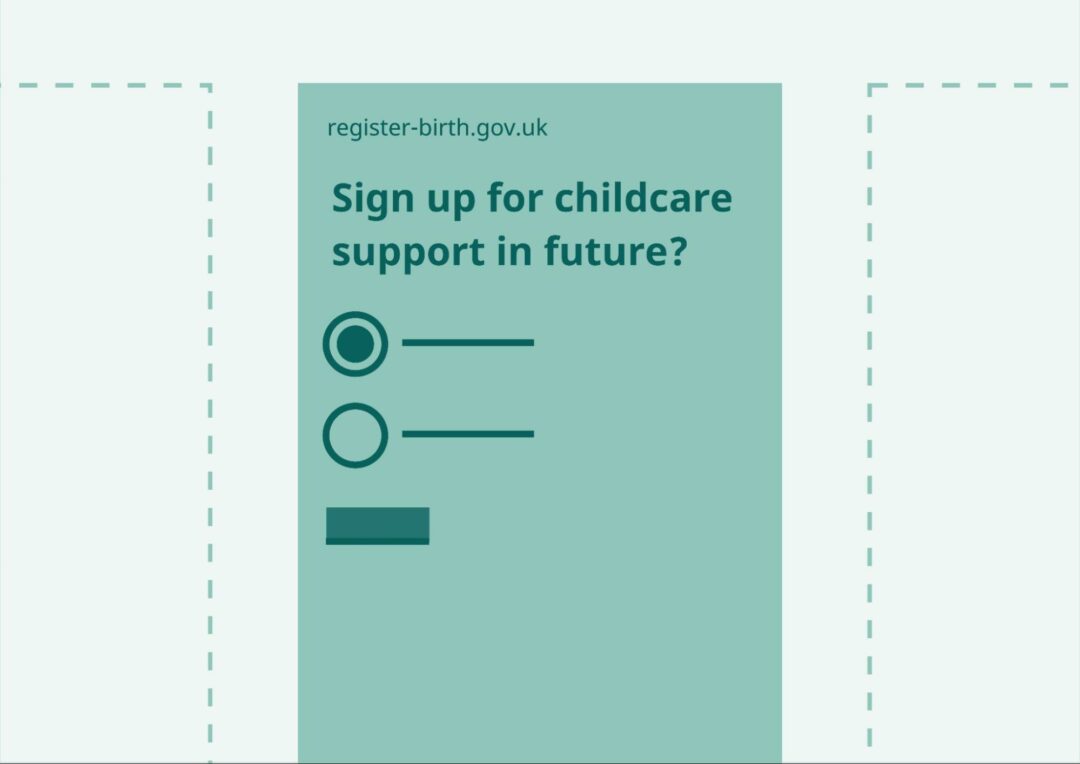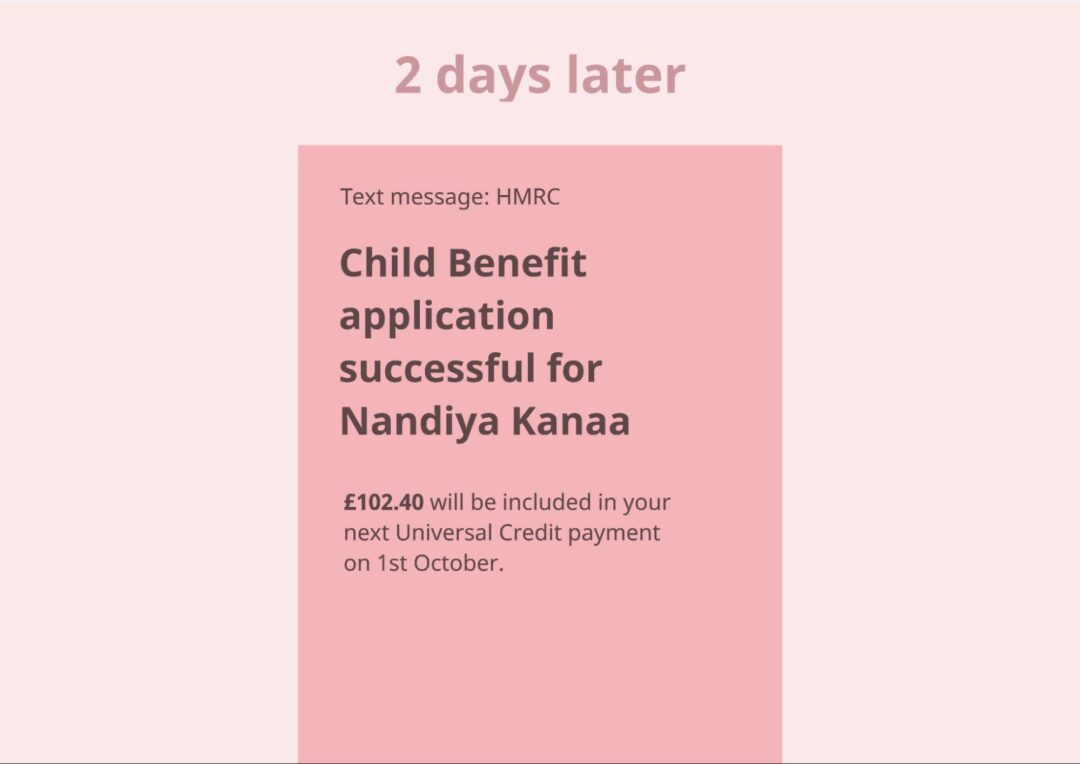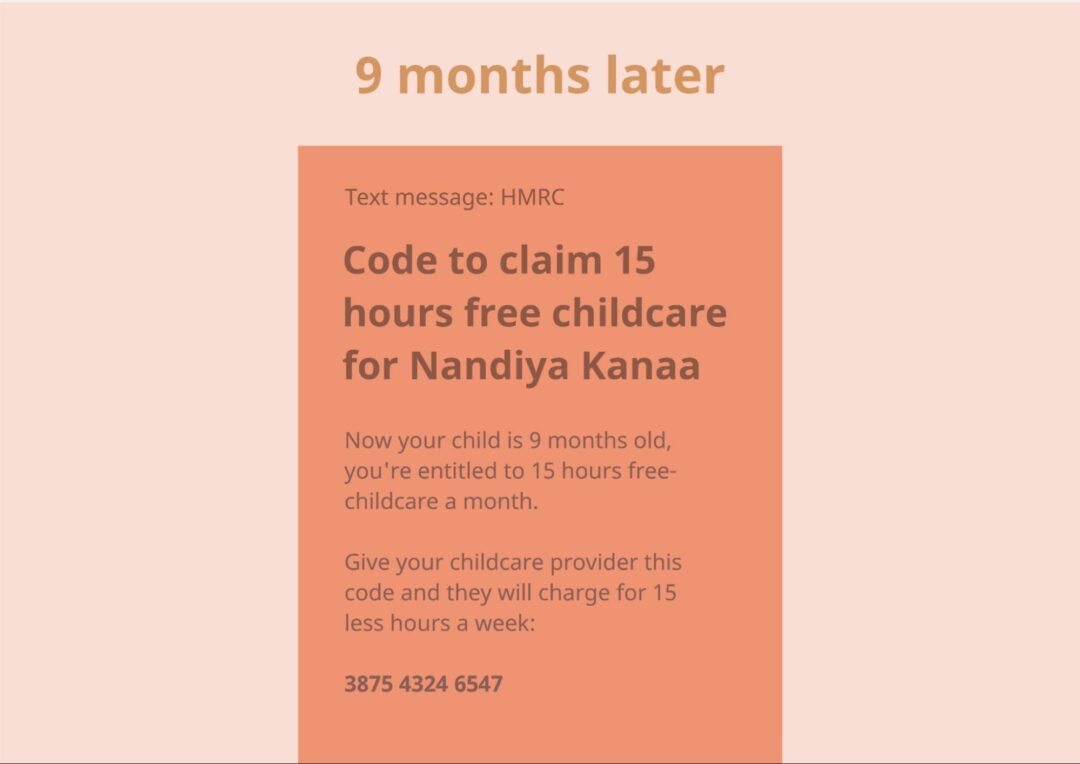A proactive state for working parents

All the hard work is done backstage. All by software. We just need the political will to connect services that already exist
Imagine public services that proactively gave people what they were entitled to. No form filling. No sending applications. No waiting weeks for a decision. No proving your circumstances over and over.
This post shows what a proactive state for working parents could look like. And how it would help make our economy more productive.
The current state
Recently, Harry was late paying monthly childcare. He had the money on payday, ready to pay the childcare invoice on time. Yet it took two working days to get the 20% top up via the tax-free childcare service. Apparently some HMRC software doesn’t work evenings and weekends. As illustrated by recent headlines about half a million people being left without Child Benefit payment, we need root and branch reform of the digital infrastructure that supports working families.
Families missing out
Laura is a friend of Harry’s. She’s self-employed as a hairdresser and single mum to a toddler. She’s amazing. She also does not claim tax-free childcare.
At first, Laura didn’t claim because she just wasn’t aware of the service. Then, she worried about making a mistake in her application, following a bad experience getting penalised by Universal Credit when her daughter was born. Laura does claim the 15 hours free childcare she’s entitled to, but often has to ask her childminder to help. A service that is heavily manual and time-consuming are signs of it just not working.
We see the effects of this in our everyday lives. Harry and I both have kids under two. So it’s probably no surprise that we feel this most acutely when attempting to access support aimed at families.
Government knows the facts
After the birth of a child, the child is registered with the General Register Office (GRO). This isn’t a choice – it’s a legal requirement. As a result, we can assume that ‘government’ is aware that a child has been born. Where they live. And who their parents are.
‘Government’ are also generally aware of your employment and income status, through PAYE and self-assessment tax returns.
Yet at no point does the UK currently connect the dots between these two (or three, if you have a two parent household) data points in order to proactively provide support for families.
In the near future, we believe the ‘user journey’ for obtaining child benefits, tax free childcare and/or free nursery hours could look something like this.
First, when someone registers their child’s birth with the local council, they are asked by the registrar if they want to sign up for childcare support in future.

Second, someone gets benefits the moment they become entitled to them. That’s it. Everything flows from the trigger event of registering a birth. The government does the rest, as it already knows a family is eligible for support by matching HMRC, DWP and General Register Office records.
The two examples below are text messages.

One telling someone their Child Benefit application is successful and they can expect the extra money in their next Universal Credit payment.

The second, when someone’s child reaches 9 months, automatically sending them a discount code to claim free childcare.
All the hard work is done backstage. All by software. We just need the political will to connect services that already exist.
The cost of not giving people proactive support
As professionals analysing and designing public services, we know that the existing government digital infrastructure prevents this from being an easy win.
But as parents, we feel how big a win this would be.
A report by Policy in Practice calculated that £1.7 billion of child benefit support went unclaimed last year.
The admin and paperwork required to claim subsidised childcare doesn’t have to be a hard part of being a working parent. Right now it is, and that is holding us back.
Not just as parents, but also as a country and economy. The funding of public services is falling increasingly on working-age parents. According to the ONS, the employment rate for mothers is higher than for either women or men without dependent children.
We see these patterns replicated across every aspect of life, not just parenthood. An estimated £23 billion in benefits went unclaimed last year. Benefits exist to help reduce inequality, remove barriers and provide access to opportunity. If we’re unable to deliver the right benefits to the right people, we’re also unable to measure the success (or failures) of benefits in achieving their objectives e.g. supporting the careers of parents, and as a result we’re limited in our ability to learn from these interventions in order to target and improve the support provided by the state.
At the same time, the inability to deliver benefits simply and effectively contributes to fraud and error. We all suffer the impact of failure.
Reducing the manual burden of government on working-parents should be a priority.
We need ‘digital public works’
At the start of the year, Harry and I wrote a blog post about the importance of digital public works. At the moment, building services and accessing data is a new problem every time. Every digital team ends up building the same things from scratch: logins, digital proof, document storage.
Not only is this really inefficient, it makes it difficult for teams working within government to design and build services that are able to relate to one another. So individual services and functions become siloed. We turn to technology for solutions. But, without the functional foundations in place, we find ourselves at risk of storing up problems for the future.
Digital public works can start now. These ideas are not new. Beyond our borders, governments are already using technology in this way (perhaps most notably with the productisation of Estonia’s X-Road). Closer to home, the UK is delivering on One Login, a crucial part of the puzzle. The data exists in departments. HMRC, Home Office and DWP already have talented digital teams to build things. There are no new behaviours to encourage, as parents already register births online via a registar. This is feasible. We owe it to working parents like Laura to build those final steps.